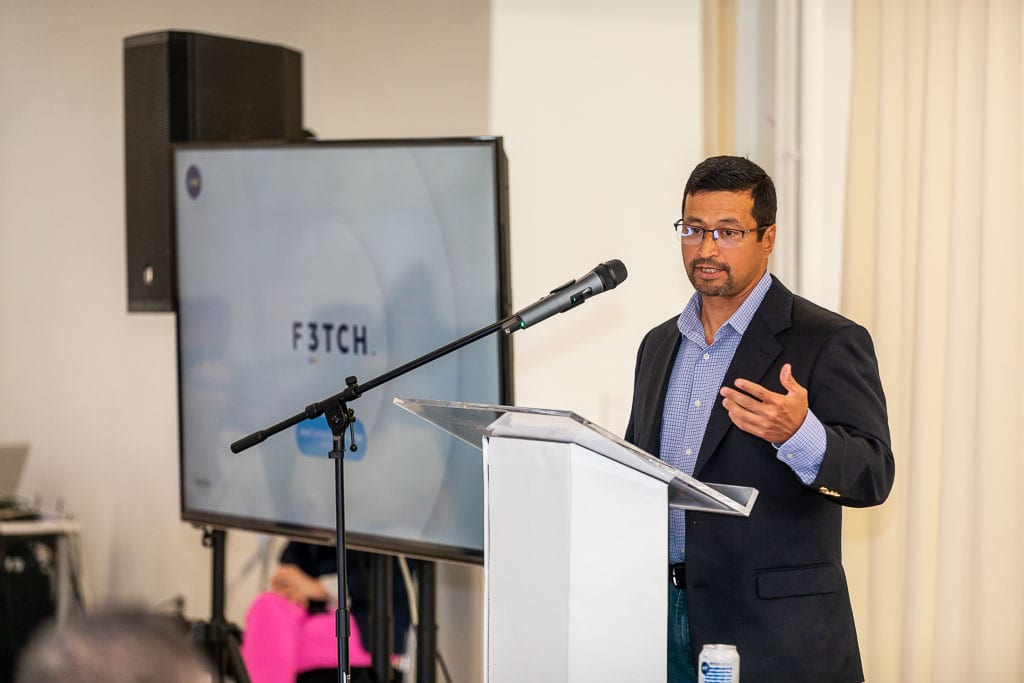Tips for bridging the gap between investors and local entrepreneurs
Angel investing can be intimidating, but with help from groups like the Chamber's First Launch Capital Fund, investors can make a huge difference in local companies.

F3TCH presents at the 2022 Capital Connects pitch competition.
Whether you’re new to the local investment scene or are a seasoned pro, odds are that you have at least a passing understanding of early-stage/angel investing.
It’s a high-risk, high potential reward investment strategy that can make a huge mark on early-stage companies. Most importantly, angel investing is absolutely vital to the growth of communities. the state and the nation.
Take a business like Guerrilla RF as a prime example. Formed in 2013, this Greensboro company’s technological innovations allow wireless infrastructure manufacturers to increase their coverage areas and data rates. Guerrilla received several key angel investments in their early days and in under a decade has achieved a multinational reach. While their rapid growth means exponential return on investment for investors, it also implies a huge positive economic impact to the Greensboro community through job creation.
But many new investors are wary of the risks associated with angel investing. The reality is the vast majority of early-stage companies fail, making this an incredibly high-risk asset class. But despite the risks. there are several reasons why investors should consider this model. Matt Bailey, the director of VentureSouth Piedmont, puts it this way, “Angel investing gives you the opportunity to root yourself in your community and become a key player in that exciting, high-energy, early phase of an up-and-coming business. Beyond that, it’s intellectually invigorating, allowing you to engage with a wide spectrum of businesses from biotech and life sciences to health care and consumer package goods.”
That’s good news for those of us living in the Greensboro area because we are home to quite a diverse pool of growing industries.
Bailey also said angel investing ultimately gains you access to the ground floor of cutting-edge businesses. “Consider a company like Proterra,” he said. “They make the electric buses we see all over town now. They were ahead of the pack in terms of innovation only 10 years ago, and now they’re a household name in the Greensboro area. Why? Largely because of angel investors.”
The point here is that as an angel. if you help a small company make a couple of good decisions or strategic hires, you can radically change their trajectory for the better. The ROI goes well beyond dollar signs.
If you’re considering becoming an angel, here are the three keys to mitigating risk and maximizing returns.
1. You’ve got to change your perspective.
Malay Shah, co-director of VentureSouth Piedmont, reminds us of Warren Buffet’s two rules of investing. Rule No. 1: don’t lose money. Rule No. 2: see rule No. 1. But he also warns us that in the world of angel investing, you’ve absolutely got to drop this mindset at the door. That’s because there’s a good chance that you will lose money along the way. But Malay says, “the key to the game here, the key to creating returns both for yourself as an investor and for your community, is to take a lot of ‘shots on goal.”‘ In other words, you’ve got to build a large and diversified portfolio in order to maximize ROI.
The other side of this perspective shift concerns time to return. In short. when it comes to angel investing, you must master the art of patience. Nathan Powell from First Launch Capital Fund said you’ve got to be prepared to wait, as that ROI can take upwards of 10 years to see. Angel investing is quite unlike venture capital in that sense. The time to return is just longer. That means that patience is a prerequisite to success in the angel investment world. There’s simply no way around it.
2. You don’t need deep pockets; you need diversification.
The first half of this point often comes as a surprise. but Bailey suggests that one of the most common assumptions people make about investors engaging with this high-risk asset class is that they must have deep pockets and. consequently, have the ability to generate big returns. However, this notion couldn’t be further from the truth. You can actually invest small dollars over a large number of deals and achieve a huge impact. For instance. investing $50,000 (a reasonable amount for an accredited investor) across 10 investments (that’s $5,000 a pop) can produce some surprising results. Bailey articulates two key takeaways here. The first is diversification. While you’ll likely lose some money along the way, diversification significantly increases the likelihood that when it’s all said and done. you’ll win the day. The second key: Don’t fear risk but fear the risk you don’t know. In other words, you need to stay well informed so you can diligently reduce those risks you have identified.
3. Seek out educational opportunities.
Learn. That needs to be your new mantra. And when does most of this education take place? According to Powell. it happens when you’re getting your hands dirty out in the real world. A formal education is invaluable, but it’s the day-to-day experiences of learning from our successes and failures that turn theory into practical know-how. Alternatively, Bailey urges wouldbe angels to check out Venture Carolina, the nonprofit arm of VentureSouth Piedmont. They offer a suite of insightful workshops and conferences to help bridge the gap between angels and entrepreneurs. Among their offerings, Bailey said he suggests the course on term sheets as especially valuable because it lays the foundation of terminology and investment structure, empowering you to have productive conversations that you wouldn’t be able to have otherwise.
If you do nothing else, join an investment group like VentureSouth Piedmont or First Launch Capital Fund. Not doing so is like walking down a blind alley. That’s because investment groups help mitigate tunnel vision by giving you access to other investors’ experiences and perspectives. and they help you uncover qualified deals you may not have found otherwise.
While angel investing might not be for everyone, if you are an accredited investor there’s a good chance it will make sense for your portfolio. The questions to ask yourself, Shah said, include how much time do you have, and how much time do you want to spend? That determines how much you’ll want to dig into a particular asset class. Angel investing is thrilling work, giving investors the opportunity not only to see huge ROI. but also to make positive waves for growing businesses and our local community. Or. as Bailey said, it gives you the chance to simultaneously “make money, have fun, and do good.”
Launch Greensboro accelerates growth for local entrepreneurs through education, mentoring and access to capital. First Launch Capital Fund is a seed stage venture fund based in the Piedmont Triad region of North Carolina.













